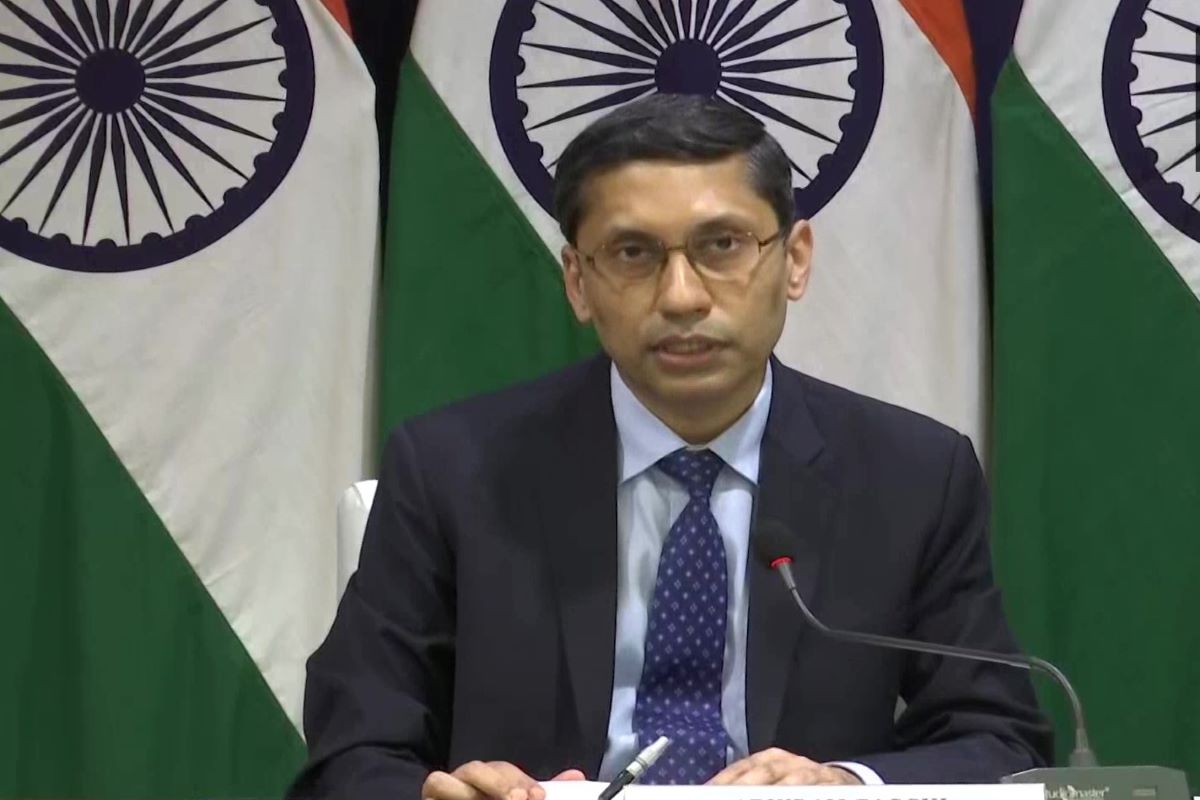India on Tuesday welcomed the United Nations Security Council’s decision to list Pakistan-based Lashkar-e-Taiba’s (LeT) deputy chief Abdul Rehman Makki as a global terrorist, saying that the country will press the international community to take strict action against terrorism.
Responding to media queries regarding the listing of Makki by UNSC’s ISIL (Da’esh) and Al-Qaida Sanctions Committee, Ministry of External Affairs spokesperson Arindam Bagchi said, “We welcome the decision of the UN Security Council’s ISIL and Al-Qaida Sanctions Committee to list Lashkar-e-Tayyiba (LeT) terrorist Abdul Rehman Makki, who is also the brother-in-law of LeT leader Hafiz Saeed.
Advertisement
Makki has occupied various leadership roles in LeT, including raising funds for the organisation.” “Threats from terrorist organisations in the region remain high and listings and sanctions by the UNSC, are an effective tool to curb such threats and dismantle terror infrastructure in the region,” he added.
India remained committed to pursuing a zero-tolerance approach to terrorism, Bagchi said, adding that New Delhi will continue to press the international community to take credible, verifiable and irreversible action against terrorism.
Earlier, on Tuesday, China finally lifted its ‘technical hold’ on the designation of Makki as a global terrorist under the 1267 UN Sanctions Committee after the country was left isolated in the Security Council.
This listing comes after China last year put a ‘technical hold’ India’s bid to name the Lashkar-e-Taiba (LeT) leader a global terrorist. In June 2022, India slammed China after it blocked the proposal to list terrorist Abdul Rehman Makki under the Sanctions Committee, also known as the UNSC 1267 Committee.
“On 16 January 2023, the Security Council Committee pursuant to resolutions 1267 (1999), 1989 (2011) and 2253 (2015) concerning ISIL (Da’esh), Al-Qaida, and associated individuals, groups, undertakings and entities approved the addition of the entry specified below to its ISIL (Da’esh) and Al-Qaida Sanctions List of individuals and entities subject to the assets freeze, travel ban and arms embargo set out in paragraph 1 of Security Council resolution 2610 (2021) and adopted under Chapter VII of the Charter of the United Nations,” the UN said in a statement.
India and the US have already listed Makki as a terrorist under their domestic laws. He has been involved in raising funds, recruiting and radicalizing youth to violence and planning attacks in India, especially in Jammu and Kashmir.
Makki has performed various leadership roles within the LeT, a US-designated Foreign Terrorist Organization (FTO), while also playing a role in raising funds for LeT operations.
Makki’s case was submitted on June 1, 2022 by India with the US joining as a co-designating state. One member state placed a technical hold on June 16, 2022 and renewed its hold in mid-December.
India had made listings of Pak-based terrorists a top priority of its UNSC tenure during 2021-22. A total of five names — Abdul Rehman Makki (LeT), Abdul Rauf Asghar (JeM), Sajid Mir (LeT), Shahid Mahmood (LeT), and Talha Saeed (LeT) — were submitted by India for designation under 1267 in 2022.
Each of these five names was initially placed on technical hold by one member state (China) while all other 14 members of the Council agreed to their listing.
In 2020, a Pakistani anti-terrorism court convicted Makki on one count of terrorism financing and sentenced him to prison, acccording to the US State Department.
China had earlier placed hurdles to the listing of known terrorists, particularly from Pakistan. It had repeatedly blocked proposals to designate Maulana Masood Azhar, chief of the Pakistan-based and UN-proscribed terrorist entity, the Jaish-e-Mohammed (JeM).











